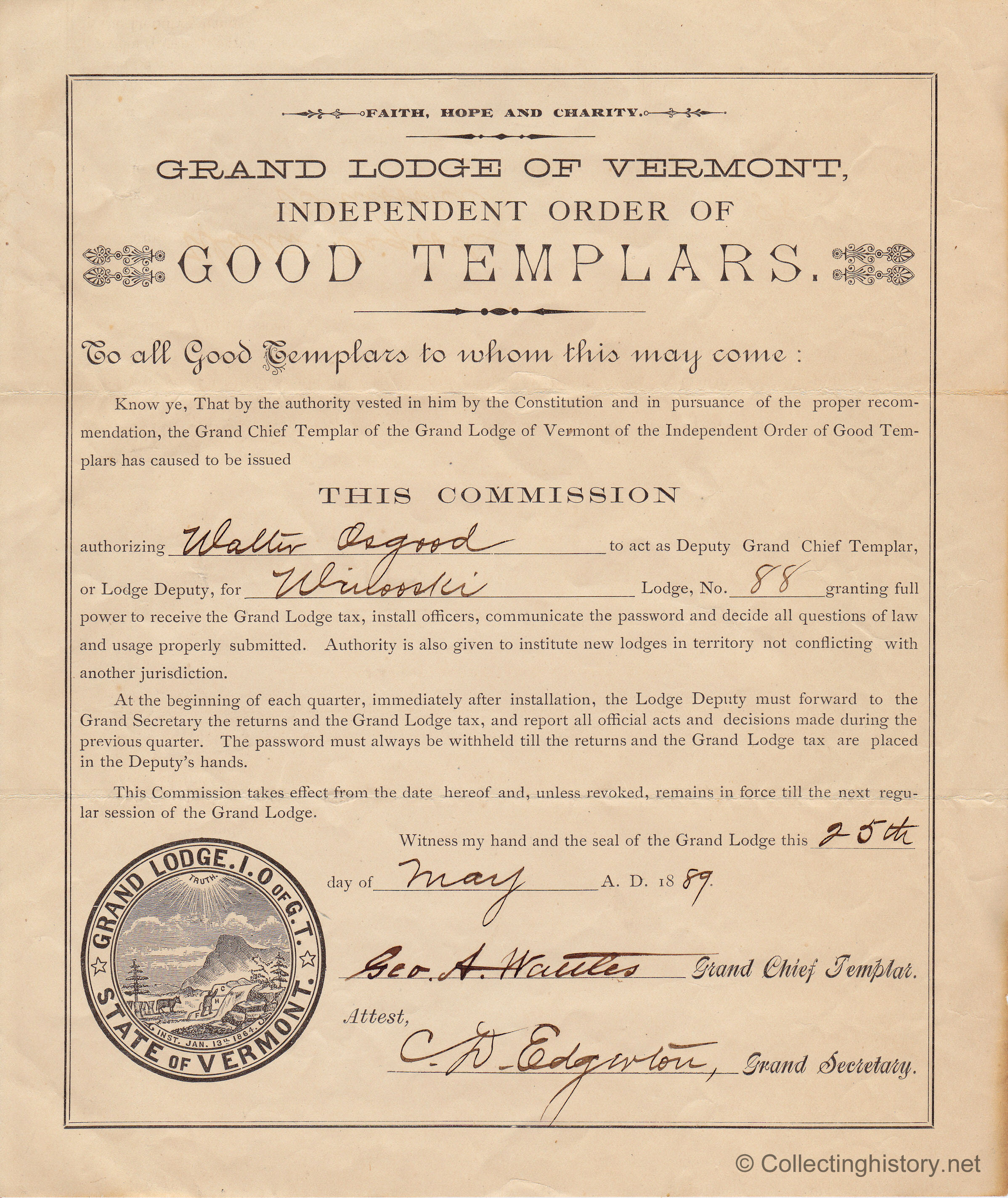
Commission from the Independent Order of Good Templars
This document is a commission from the Independent Order of Good Templars, State of Vermont. The commission is dated 25 May 1889 and authorizes Walter Osgood to act as Deputy Grand Chief Templar or Lodge Deputy for Lodge No. 88. It's signed by the Grand Chief Templar and the Grand Deputy. The lower left corner features the seal of the Grand Lodge I.O. of G.T. State of Vermont.
Background
From the end of the Civil War to the turn of the century, the majority of people in temperance organizations belonged to fraternal groups--highly organized secret societies requiring total abstinence, and aimed primarily at helping members stay sober, improving their character and helping other drunkards reform. As the Most Worthy Scribe of the Sons of Temperance explained, the Sons "sprang from the lap of the Washingtonians," and were dedicated to carrying on the reformation work by providing greater organizational structure and support. It was concerned with helping "reformed inebriates;" its first purpose was "to shield its members from the evils of intemperance."
In the latter half of the 19th century the Sons of Temperance, the Good Templars, and a host of smaller fraternal groups, functioned in much the same manner that A.A. does today. They provided addicts who joined their organizations with encouragement, friendship and a social life free from alcohol. They went to inebriates in times of need, and in some cases offered financial support as well.
Moderate drinkers, not drunkards, came in for the most scorn in temperance literature. "And if there be any difference in the degrees of guilt between moderate drinkers and drunkards," asserted a Good Templar tract, "the moderate drinker is worse than the drunkard."
The Independent Order of Good Templars, the largest temperance membership organization in American history, was so involved in reform work that it worried about being branded solely as an association of ex-drunkards. While lifelong abstainers were important to the organization, a central focus of the Good Templars was helping inebriates to become and stay abstinent. Good Templars were urged to "run and speak to that young man who is contracting vicious habits--gain his consent that you shall propose his name for membership in the lodge." In the initiation ritual of the Good Templars, those members "free from the undying curse of appetite" were encouraged to "fully sympathize with the confirmed inebriate." Those being initiated into the Charity Order were urged to "study well the nature of this appetite;" they were told that reformed individuals sometimes relapsed, and reminded that their task was to go to "thy reclaimed brother" in his "awful hour." And they took pride in pointing out "the many official positions now filled by worthy men who have been reclaimed and reformed, given back to their families and community . . . by the labors of the Good Templars."